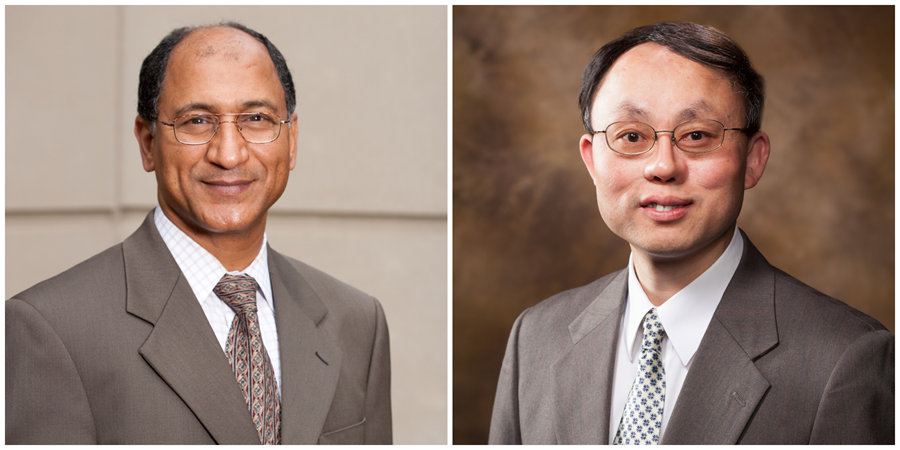
FAYETTEVILLE, Ark. – An interdisciplinary team of University of Arkansas researchers is fighting COVID-19 using microwaves and plasma to disinfect personal protective equipment for medical professionals. Researchers hope it will enable single-use equipment to be safely reused.
Samir El-Ghazaly, distinguished professor of electrical engineering, and Yuchun Du, associate professor of biological sciences, received a $299,963 grant from the National Science Foundation to investigate how microwave and plasma doses can kill the coronavirus within five minutes while preserving the integrity of equipment.
Researchers are working to understand how the effective combination of microwave and plasma doses, exposure time, humidity and temperature can destroy the virus.
“We wanted to focus on this research to improve the personal protective equipment shortage and develop a versatile and environmentally friendly decontamination approach,” El-Ghazaly said.
With virus cases on the rise and medical teams facing equipment shortages, El-Ghazaly and his team want to develop a safe and effective method for disinfection.
“The proposed disinfection process does not use chemicals or emit toxic gases,” El-Ghazaly said. “Thus, it presents an environmentally friendly approach to the decontamination process.”
The team will begin testing this summer at the University of Arkansas Engineering Research Center in south Fayetteville.
“We will build a test system that combines microwave energy and plasma,” El-Ghazaly said. “The test system will precisely control the intensity of the microwave and also the plasma density.”
The device chamber will help the team monitor the temperature and humidity. Researchers will use influenza A viruses, which are enveloped viruses similar to COVID-19.
“Like coronaviruses, influenza A viruses are RNA viruses and are surrounded by a host-derived lipid bilayer,” El-Ghazaly said. “It has been widely used in vaccine studies and vaccine productions and has a very low risk. The effective destruction of influenza A virus would guarantee the system's capability to destroy COVID-19.”
About the University of Arkansas: The University of Arkansas provides an internationally competitive education for undergraduate and graduate students in more than 200 academic programs. The university contributes new knowledge, economic development, basic and applied research, and creative activity while also providing service to academic and professional disciplines. The Carnegie Foundation classifies the University of Arkansas among fewer than 3 percent of colleges and universities in America that have the highest level of research activity. U.S. News & World Report ranks the University of Arkansas among its top American public research universities. Founded in 1871, the University of Arkansas comprises 10 colleges and schools and maintains a low student-to-faculty ratio that promotes personal attention and close mentoring.
Topics
Contacts
Nick DeMoss, director of communications
College of Engineering
479-575-5697,
ndemoss@uark.edu